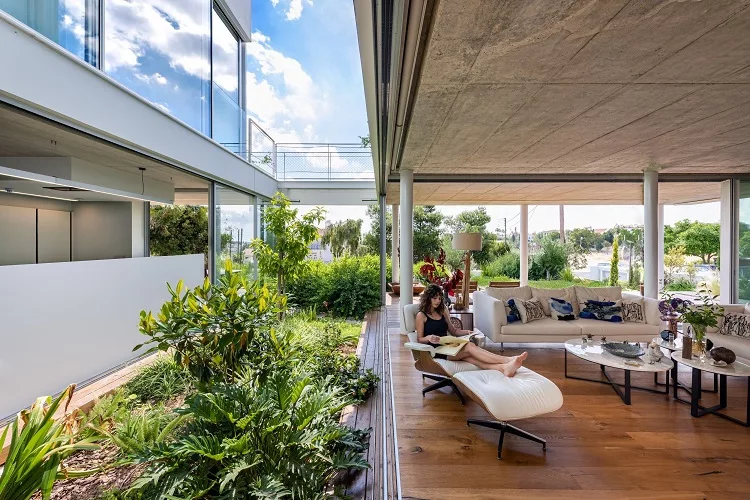
Christos Pavlou: Transforming Urban Spaces with Nature
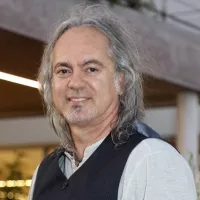
Christos Pavlou Architecture, known for its innovative integration of nature and urban design, recently received recognition in the Interior Design Residential and Landscape Architecture Residential categories for their project, “The Garden House in the City.” We spoke with Christos Pavlou, the founder and lead designer, to discuss their design philosophy, approach to client needs, and insights on future trends.
Could you give us a little background on yourself or your company?
Christos Pavlou: I founded Christos Pavlou Architecture in 2003, based in Nicosia, Cyprus. Despite being a small studio, we pride ourselves on providing personalized and friendly service to our clients. Our practice focuses on housing, commercial, and interior architecture. We are attentive to the environment, land parameters, specific site views, climate conditions, and the needs of our clients. Our projects are distinguished by their formal simplicity, integration of inside and outside spaces, and smooth transitions between spaces.
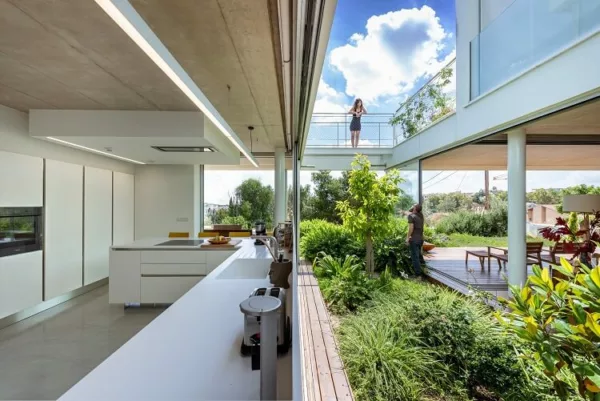
What was the brief for the award-winning project?
Christos Pavlou: Integrating a single house into the urban fabric is always challenging. However, it can function positively as an organism where nature and urban surroundings create sustainable solutions. Our design objectives for “The Garden House in the City” aimed to preserve urban biodiversity, reduce carbon dioxide, use renewable resources, minimize maintenance needs, and enhance urban landscapes.
Please describe the design process. How was it resolved?
Christos Pavlou: Our design concept was to visually connect the city house to its surrounding landscapes, highlighting nature’s beauty in urban life. By splitting the house into two rectangular cubes, we created a green courtyard at its heart, surrounded by greenery. This design fosters a unified relationship between the private garden and the public green areas, emphasizing that the house is part of the park and vice versa. This approach aims to create a seamless transition between the private and public spaces, promoting a more inclusive urban environment.
What is most outstanding or most innovative about the project?
Christos Pavlou: The innovation of our project lies in allowing the landscape to become the building block of its structure. Our design extends the concept of the “garden house” to the “garden city.” By bringing nature back to communal areas and converting small urban spaces into green zones, we create a network of green islands that combat climate change and promote healthier living. This project challenges the traditional urban private home typology by eliminating boundaries between the home and the public domain, fostering social interactions and improving urban conditions.
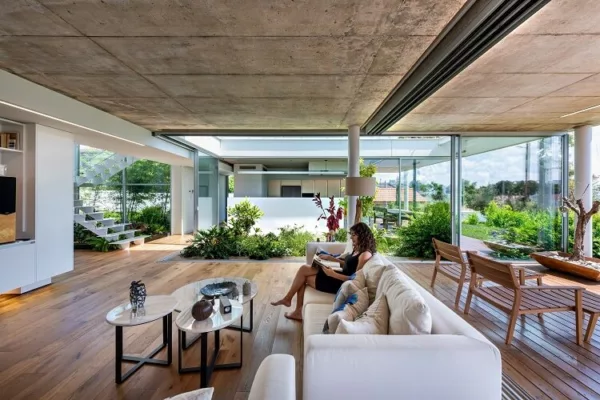
What outcomes of the project are you most proud of?
Christos Pavlou: We are proud of promoting shared prosperity and creating more inclusive cities. Our design encourages everyone to enjoy the benefits of green urbanization, making neighborhoods more welcoming and connected. This project aims to function as a cohesive agent within the community, enhancing its value as a place of shared experience.
Who are your biggest influences or who do you most admire in your particular discipline?
Christos Pavlou: My biggest influences since my student years are the architects Aldo Rossi and Aldo Van Eyck.
What future trends, technologies, social changes, or other influences do you feel will have a major impact on your discipline?
Christos Pavlou: Green urbanization will significantly impact our discipline, promoting a beautiful and sustainable living environment.
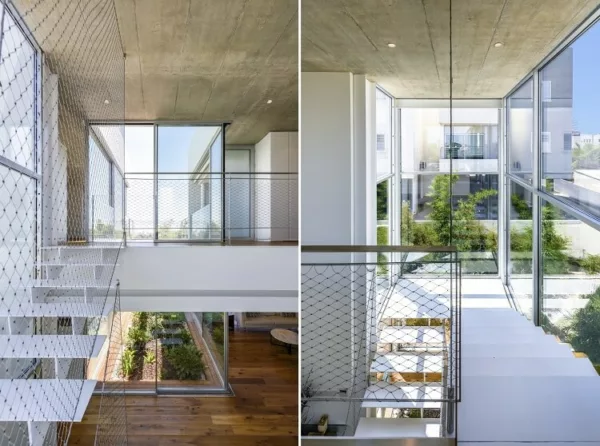
How can your discipline make a real difference to society and the world?
Christos Pavlou: Cities contribute significantly to environmental issues, emitting 60% of carbon dioxide and accounting for over 70% of global CO2 emissions. With urbanization on the rise, it’s imperative to integrate nature into urban planning. Our projects aim to reintroduce nature into the urban environment, creating healthier and more sustainable cities.
How do you feel about receiving an Architecture MasterPrize?
Christos Pavlou: It is a great honor to receive the Architecture MasterPrize award. It provides a fantastic platform to showcase our work alongside the world’s leading architects.
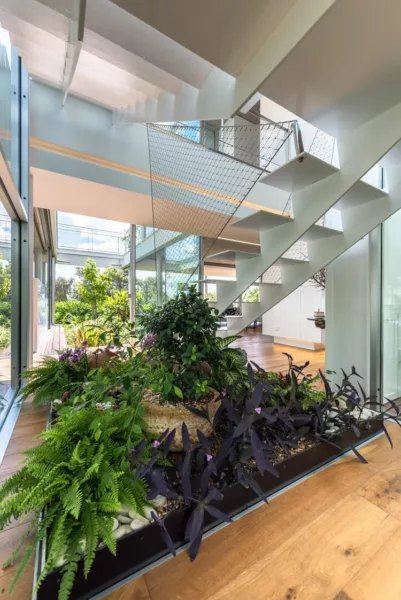
We extend our heartfelt gratitude to Christos Pavlou for sharing his insights and innovative approach to design. Through projects like “The Garden House in the City,” Christos Pavlou Architecture exemplifies how thoughtful integration of nature into urban environments can transform our cities into more sustainable, inclusive, and healthier spaces. Their commitment to green urbanization and the seamless blend of private and public spaces offers a visionary pathway for future urban development.